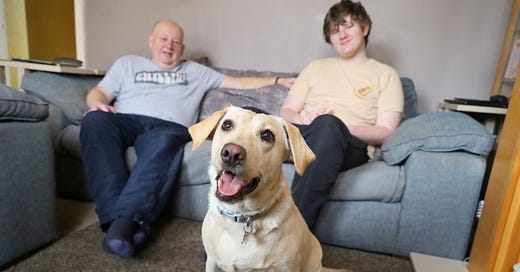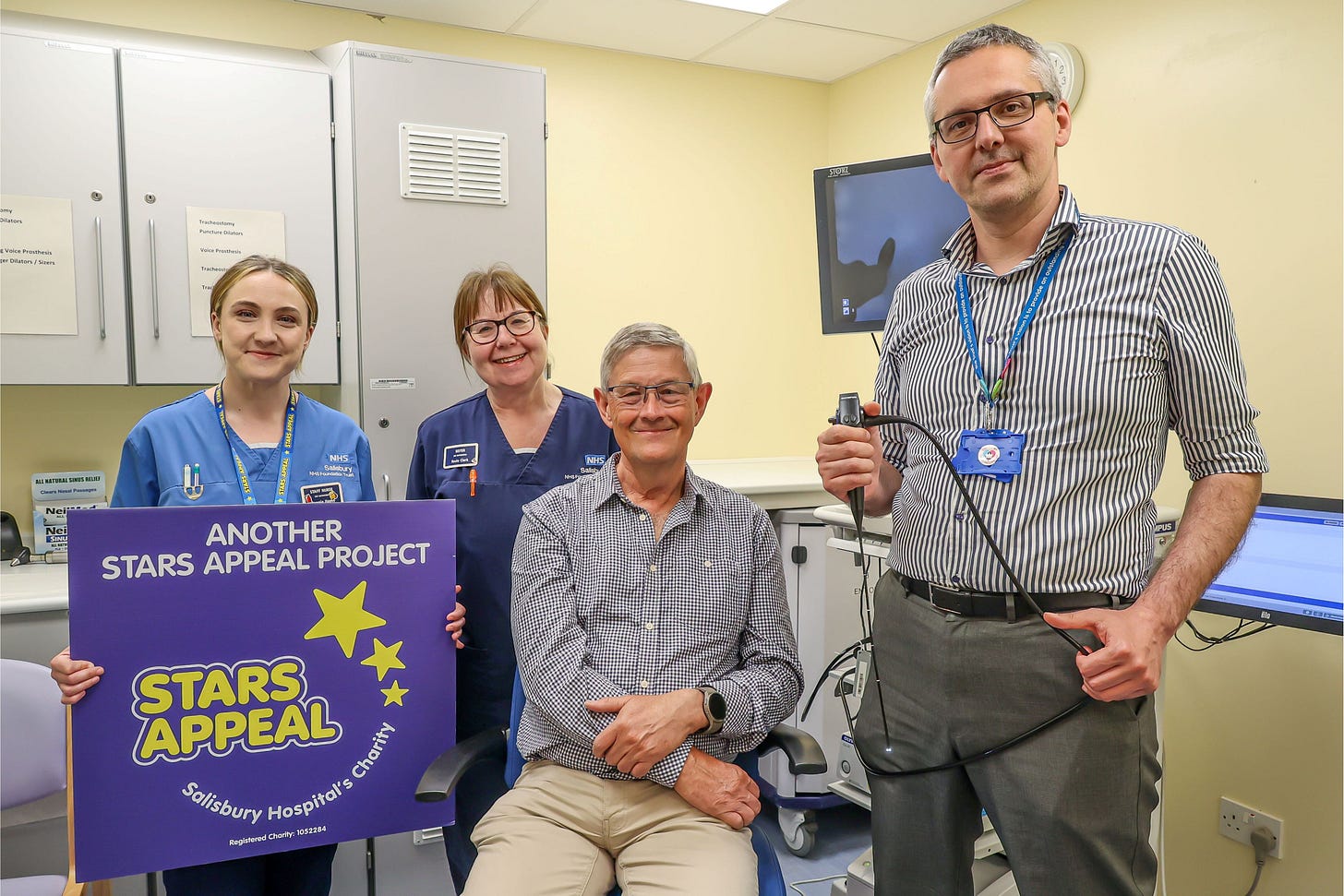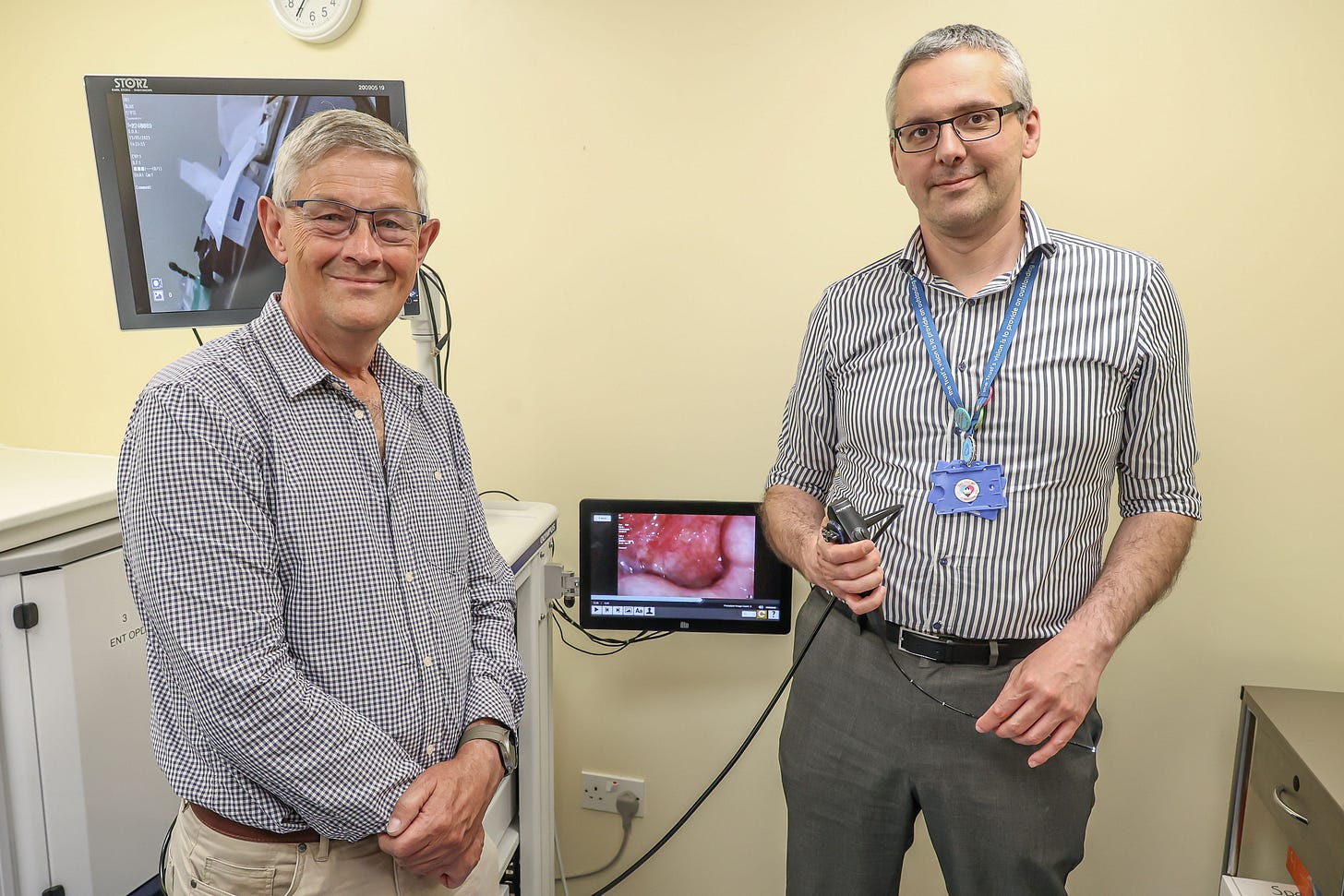By Annette J Beveridge
LONELINESS affects many people, but often, a pet becomes a friend and companion but also a part of the family, which is important as the number of over-50s experiencing loneliness is set to reach two million by 2026.
While the Dogs Trust acknowledges that owning a dog is not a cure for loneliness, it does offer comfort, routine and a connection with others, helping to reduce social isolation.
Queenie the Labrador was given a second chance at happiness when Stephen Thompson rehomed her from Dogs Trust, but he had no idea how much she would transform his life.
He said: “As soon as I saw her, I knew Queenie was the girl for us! We were told that she was a stray who had been through a bad time recently and was a little shy, but we were more than happy to let her get to know us slowly with a few visits.
”Before Queenie arrived, I didn't get out of the house much other than to jump in the car to the supermarket, and I would always find people avoiding me, probably due to my burly appearance.
“But Queenie has changed my life. She has given me a reason to leave the house, and her walks have helped me lose weight and find a new outlook on life. People are coming up to me to chat and ask about her, which has been a great way to find common ground with new people. She is a wonderful dog who has brought our whole family together and has made a huge impact on all of us.”
Read more: Protection for areas of outstanding beauty
During Loneliness Awareness Week (9 June - 15 June), the Dogs Trust hopes that happy rehoming stories like Queenie's will help break down the stigma and encourage people to have open conversations about loneliness.
Dogs Trust Salisbury is open to the public on Monday, Tuesday, Thursday, Saturday and Sunday from 12–4 pm. An appointment is not necessary if wanting to meet dogs looking for homes, to get advice or to apply to adopt. As every dog is unique, finding the perfect match can take anything from a few weeks to several months but during this time, Dogs Trust will work with each person to find the right pet family member.
To find out more about rehoming a dog with Dogs Trust or for more information about how Dogs Trust supports new dog owners, visit www.dogstrust.org.uk/salisbury.
Videoscopes make a huge difference to patients with suspected cancer conditions
By Annette J Beveridge
SIX high-definition videoscopes at Salisbury District Hospital have already provided a faster diagnosis for those with suspected head and neck cancers.
The six scopes, costing a total of £115,000, were funded by the Stars Appeal, Salisbury Hospital’s Charity, and have already helped more than 1,600 patients.
Peter Russell, 67, was first diagnosed with squamous cell carcinoma - a type of head and neck cancer that develops in the cells of the throat - in November 2019, after finding a lump in his throat.
He undergoes regular checks using these scopes to monitor his condition, and said previously it was an “incredibly uncomfortable” procedure.
He said: “I am so grateful to the Stars Appeal for funding these scopes. I am well used to this unpleasant procedure; however, the new cameras make it so much more comfortable, and for new patients, they will significantly reduce the fear of having this procedure done. It was one of the most pleasant scoping experiences I’ve had in an unpleasant set of experiences.
“After my first treatment, I was having them roughly once a month over four years. Sometimes it felt like going a couple of rounds with Mike Tyson and being punched in the nose. The new cameras made the procedure so much easier to manage.”
The new scopes provide doctors with the best quality images to assess and diagnose patients who have been referred to the hospital with a suspicious neck lump or a suspected head and neck cancer. They are also helping patients previously diagnosed with head and neck cancers as the images can be recorded and enable any changes to be detected more easily.
Peter underwent chemotherapy and radiotherapy in 2024 after a tumour was discovered.
He said: “The unique nature of my cancer meant it kept coming and going so I always knew something was going to happen. This is why this equipment is really important to me because the doctors can see any changes over time. Often it is quite subtle changes that show something is happening.”
The scopes are part of a new ‘one-stop’ diagnostic service being led by the hospital’s Ear, Nose and Throat (ENT) and Maxillofacial teams.
Prior to this, patients had to visit multiple departments across the hospital for diagnostic checks. Now they can have everything happen in one place, meaning a less stressful, more efficient, and better service for patients.
Peter added: “For a patient that doesn’t know whether they have cancer or not, are scared, wondering what’s happening and if they’re even going to survive this episode, to have something that reduces the trauma that they go through is incredibly important and appreciated. For some people, it will give them a very definitive answer, and that there is nothing there to worry about.”
ENT Consultant, Mr Kostas Marinakis, added: “The scopes have made a huge difference to the service we are able to offer, enabling more accurate diagnosis for our patients with a suspected head or neck cancer.
“The superior image quality gives us the best chance of detecting early cancers, thereby significantly increasing the chances of a cure. The scopes also make the whole procedure more comfortable and more easily tolerated by patients. Thank you very much to Stars Appeal supporters for making this possible. This is a significant quality improvement and we are incredibly grateful.”
To find out more about the work of the Stars Appeal, visit www.starsappeal.org.
Photo Credits:
Picture 1 - Peter Russell with ENT staff and one of the new scopes. Picture by Spencer Mulholland
Picture 2 – Peter Russell with ENT Consultant Mr Kostas Marinakis. Picture by Spencer Mulholland






